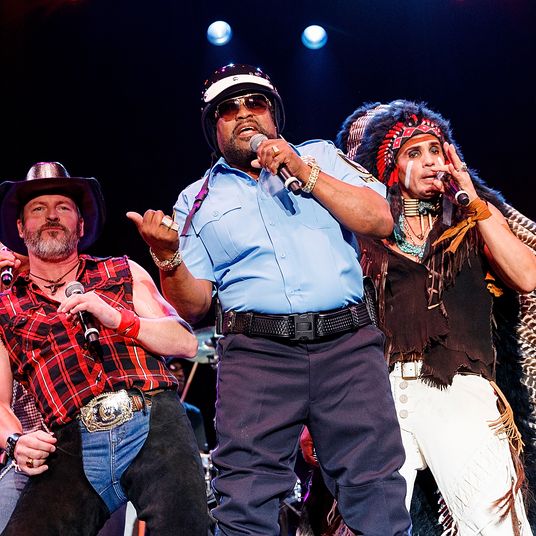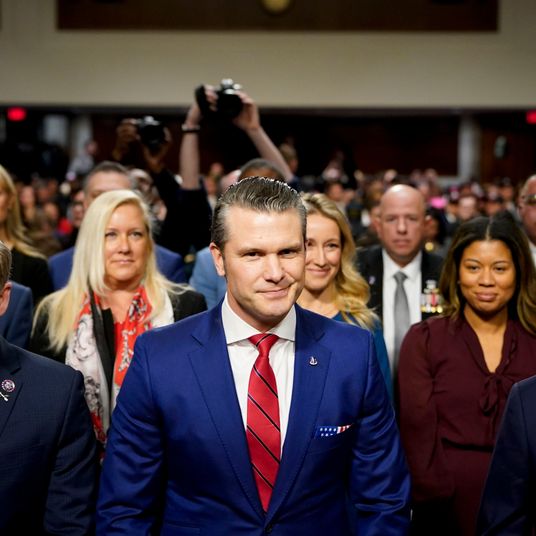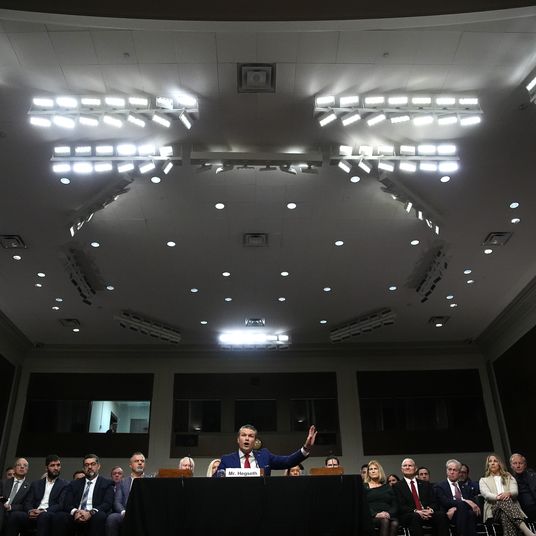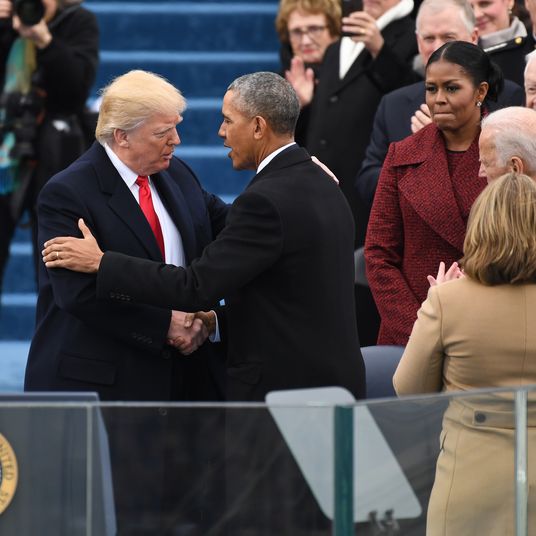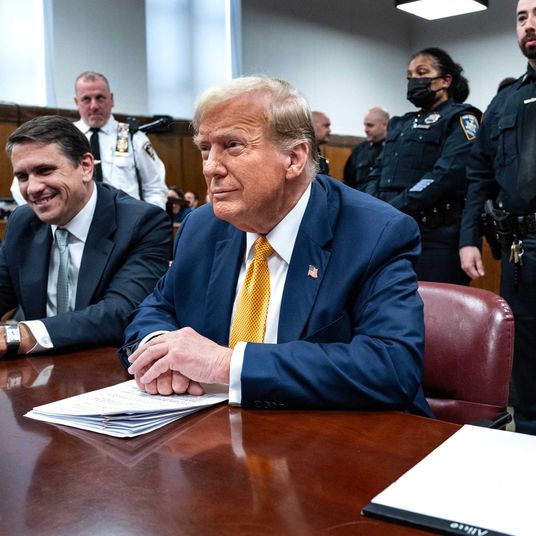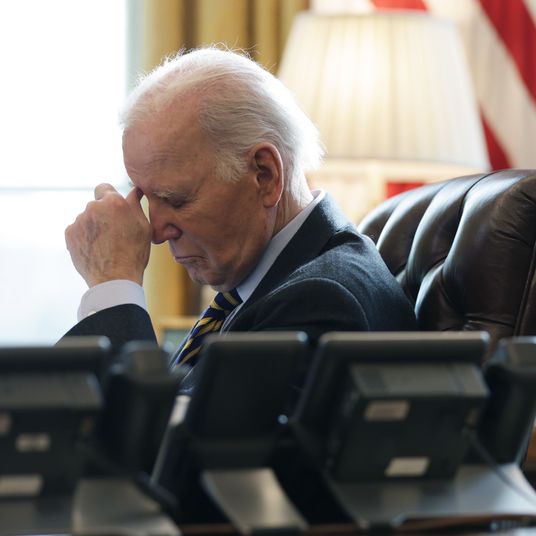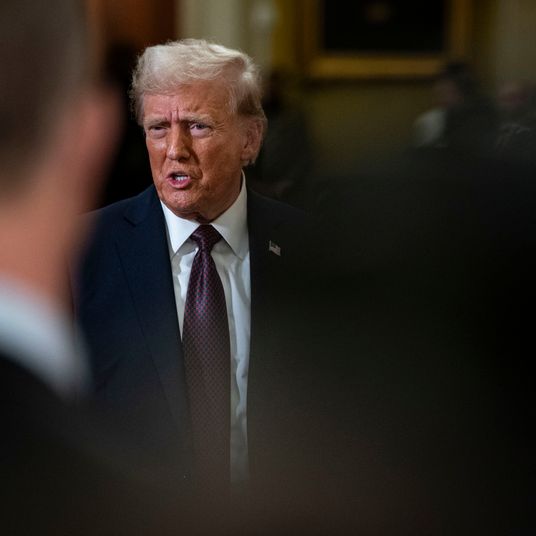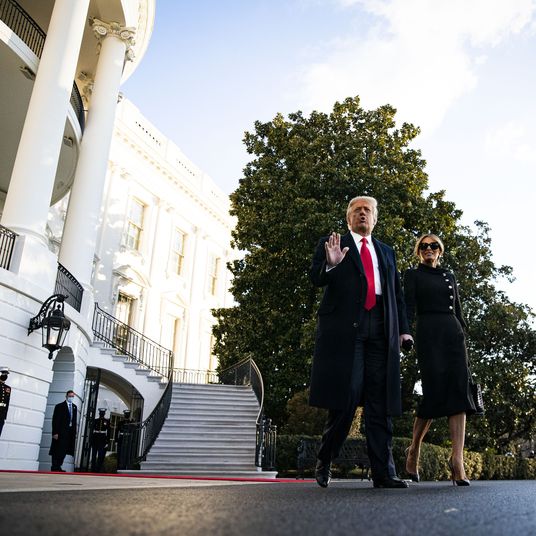
Romney eyes the prize in Salt Lake City, March 27.Photo: Getty Images
That Mitt Romney wishes to occupy the VP slot on the Republican ticket with John McCain comes as no surprise — but the blatantness of his campaign is highly amusing. As a general rule, the way one goes about these things is to be more or less subtle. You hint. You nudge. You get your pals to lobby quietly, behind the scenes. What you don’t do, for heaven’s sake, is just come out and ask. But basically this is what Romney has done — or, rather, is doing.
In the middle of March, he went on Fox News and declared, “I think any Republican leader in this country would be honored to be asked to serve as the vice-presidential nominee, myself included.” A couple of weeks later, he accompanied McCain on the trail, attending some fund-raisers with him out West and showering the Arizonan with praise. And now Mitt is stumping for McCain in Pennsylvania, keynoting a Republican dinner in Lancaster tonight — a turn that the guys over at NBC’s First Read label an “audition.”
What does McCain think of all this? He seems as amused by it as I am. The day after Romney’s Fox News turn, McCain was asked on his campaign jet if he thought Romney was angling for the gig. He replied, “I got that impression from him watching his interview last night, I got that impression” — cackling the whole time. But that doesn’t mean McCain isn’t taking the concept seriously. His veep-selection process in still in its early days, as his people run down lists that include governors from pivotal states such as Tim Pawlenty of Minnesota, Charlie Crist of Florida, and Mark Sanford of South Carolina, as well as outside-the-box choices such as Condi Rice. But I can report that Romney has some powerful advocates in his corner. In fact, according to a well-informed, highly placed Republican insider, two of them are Karl Rove and George Herbert Walker Bush — individuals who are especially influential in tandem, because they represent such different generations, outlooks, and brands of Republicanism.
The arguments for and against Romney as McCain’s VP can be summed up pretty easily. On the positive side: (a) his business background and ability to talk about the economy fluently, which McCain manifestly lacks; (b) his fund-raising prowess and his ginormous bank account — though God knows Tag and the other Romney kids would weep at the prospect of seeing more of their inheritances poured into politics; (c) his capacity to help McCain in Michigan and New Hampshire, and potentially to offset some of Barack Obama’s strength in the Rocky Mountain West. On the negative side: (a) his flip-floppery on issues, which the press would scrutinize more heavily than they did during the primaries because of the chance he might wind up sitting in the Big Chair either during or after McCain’s first term; (b) his Mormonism, for the same reasons; and (c) the fact that the Democrats and the media would replay endlessly the vicious bickering and snide potshots between him and McCain during the primaries.
This last point is of particular importance. If you were paying even cursory attention to the Republican primaries, you know that McCain and Romney don’t seem to enjoy each other’s company much. And the truth is that the degree of animus they evinced in public conveyed only a fraction of the bad feeling that existed between them. (As for their aides, well, the words that come to mind to describe their mutual disregard run along the lines of “despise,” “detest,” and “loathe.”) When asked about whether this might make it, um, awkward for them to run together, McCain has said that warm personal feelings aren’t required for running mates: “I don’t think you have a personal relationship, but you have to have a comfortable, professional relationship.”
In theory this is true, since running mates actually spend precious little time together once the campaign kicks into high gear and the team spreads out to cover as much key territory as possible. But before McCain decides to listen to Rove and Poppy Bush, he ought to give a call to his buddy Bob Dole and ask him how much fun he had in 1996 running with a fellow, Jack Kemp, whom he kind of hated — and who, for all his flaws, was a helluva lot less irritating and phony than Governor Headroom. —John Heilemann





